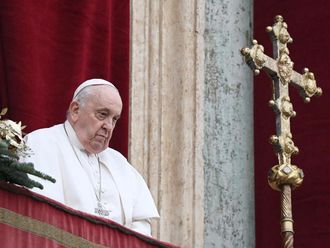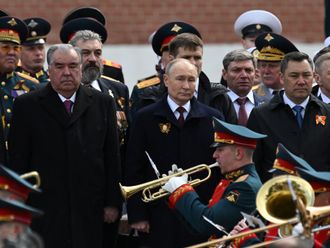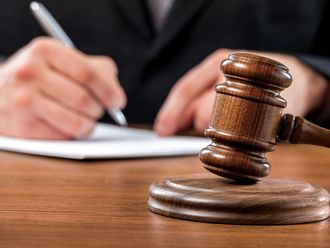Moscow: Ilya Gushchin says the two and a half years he spent in prison for standing up to the Kremlin were a warning from the authorities for ordinary Russians.
“It was a threat to the population to quieten down,” Gushchin, 28, told journalists.
“For society it showed that the authorities were willing to do whatever was needed to stay in power.”
Russia is currently gearing up for parliamentary elections on September 18 that pro-Kremlin parties look set to dominate, and that message seems to have registered.
The last time the country voted in legislative polls five years ago, tens of thousands of ordinary citizens took to the streets for mass protests that became the biggest challenge to President Vladimir Putin’s domination of the country since he took charge in 2000.
This time around there appears to be little chance of a repeat.
In late 2011 and early 2012 Gushchin — then a recent graduate who had just started dabbling in political activism — was part of the crowds in Moscow demanding change after evidence of flagrant vote-rigging emerged.
The protests petered out after riot police violently cleared a demonstration on the eve of Putin’s inauguration for a third term as president in May 2012. Gushchin was detained briefly after trying to pull an officer off a protester, but he thought little of it and carried on with life.
Then, out of the blue nine months later, police arrived at his door and arrested him.
“I had forgotten about it,” he said. “Then they just showed up.”
Gushchin was one of over 30 demonstrators — prominent activists, students, pensioners — who would be swept up seemingly at random by the authorities and charged with attacking the police.
Their cases — which came to be known as the Bolotnaya affair after the square the demonstration took place on — reverberated around the country, and rights groups denounced them as show trials.
Eventually Gushchin, who now works for prisoner rights group Rus Sidyashchaya, was found guilty. In the summer of 2015, after more than 900 days behind bars, he was released.
The legal onslaught against the demonstrators was not the only weapon the authorities used.
They simultaneously set about curbing the very right to protest.
“When Vladimir Putin returned to the Kremlin in May 2012, the authorities immediately rammed through a set of restrictive amendments to the law on demonstrations,” said Tanya Lokshina from Human Rights Watch.
“The amendments significantly curtailed the right to free assembly and hugely increased fines for breaching assembly-related regulations.”
Since then the laws have been tightened up still further as the Kremlin watched with horror the dramatic events that unfolded in neighbouring ex-Soviet Ukraine.
In 2014 huge protests deposed Russian-backed leader Viktor Yanukovych. For Putin, critics said, it was a nightmarish vision of what could happen to him at home.
“It certainly made Russian authorities even more resolved to crack down on protest activists,” Lokshina said.
In theory, with Russia mired in economic recession and living standards slipping, there appear many ingredients for demonstrations this time.
But beyond the clampdown, there are key reasons why the protest movement looks unlikely to fire up.
Putin is still enjoying high approval ratings after the annexation of Crimea from Ukraine in 2014 and some of that rubs off on the parties that support him.
Learning its lesson from last time, the Kremlin, while not relinquishing its tight grip on the controls, appears desperate to give the polls a sheen of legitimacy.
A new elections chief has been appointed to stamp out the most blatant corruption and more parties have been allowed to compete.
Meanwhile, Alexei Navalny — who spearheaded the protests five years ago — has been targeted by criminal cases and excluded from politics.
That leaves the remainder of the factious opposition rudderless and unable to counter the attacks from slavishly pro-Kremlin state-controlled media.
They are also struggling to shake off the chilling effects of the shooting of charismatic Putin critic Boris Nemtsov just yards from the Kremlin in February 2015.
Despite the years of his life he lost in jail, Gushchin insists that he would still be ready to go on to the streets if needed.
For now, however, there seems little chance of that.
“I am willing to take part in something that is worth it,” he said.
“But these days ... I don’t see anything out there that is interesting in terms of politics.”











